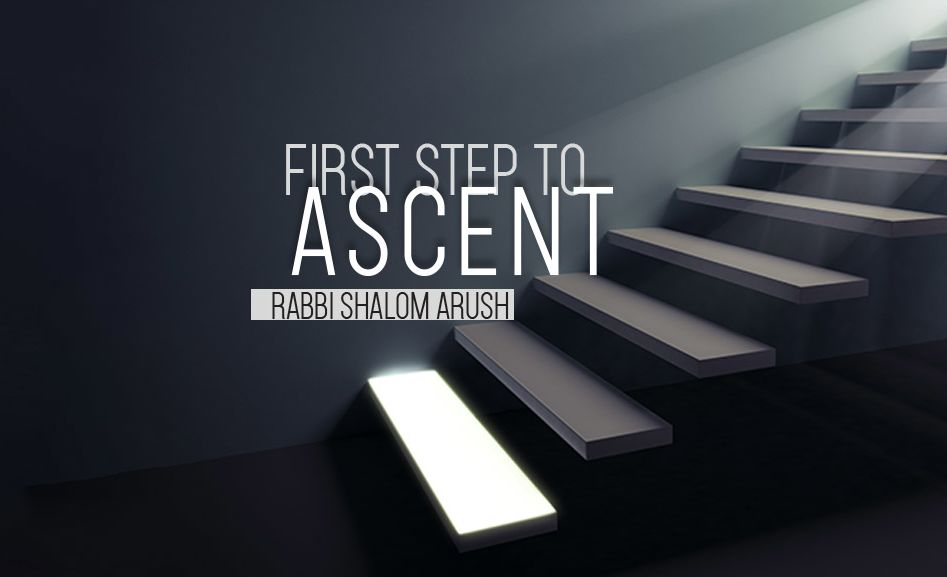
The Ultimate Test
Yehoyachin’s teshuva and one monumental resistance to temptation made such an impression in Heaven that all the harsh decrees against him were nullified...

Translated by Rabbi Lazer Brody
The Midrash tells about King Yehoyachin (also known as Yachania), who was the last king of the Davidic dynasty at the time of the destruction of the first Holy Temple and the Babylonian exile. King Yehoyachin’s unsightly behavior aroused Hashem’s wrath to the point where Jeremiah the Prophet said (Jeremiah, 22:30), “Thus said Hashem: ‘Inscribe that this man shall be childless; a man who will not succeed in his life; for none of his descendants will ever succeed to sit on the throne or to rule over Judah.’” This was a terribly harsh decree; there would be no more offspring of David to rule over the Jewish people.
Nebuchadnezzar, the Babylonian despot who destroyed the first Holy Temple and conquered Jerusalem, exiled King Yehoyachin together with Mordechai, Esther, and the leaders and wise men of Judea (Esther, 2:6).
Nebuchadnezzar imprisoned Yehoyachin in a cell so small that he couldn’t lie down. No one ever emerged  from such incarceration alive. Isaiah the Prophet describes Nebuchadnezzar’s ruthlessness and says (Isaiah, 14:17), “He made the world like a desert and tore down its cities; his captives never saw home again.” As soon as Yehoyachin was thrown into Nebuchadnezzar’s prison, it seemed positive that Jeremiah’s prophecy would now come true; namely, that Yehoyachin would die childless. How could he father a child from a nine square-foot prison cell?
from such incarceration alive. Isaiah the Prophet describes Nebuchadnezzar’s ruthlessness and says (Isaiah, 14:17), “He made the world like a desert and tore down its cities; his captives never saw home again.” As soon as Yehoyachin was thrown into Nebuchadnezzar’s prison, it seemed positive that Jeremiah’s prophecy would now come true; namely, that Yehoyachin would die childless. How could he father a child from a nine square-foot prison cell?
The wise men of the generation knew that the Mashiach must be a descendant of David. Under the present circumstances, the Davidic dynasty would be felled and the hope for Mashiach would be lost forever! They had to do something.
The Midrash tells us that the wise men approached the elderly nursemaid who raised Nebuchadnezzar’s wife, the queen of Babylonia. They urged her beg the queen to convince the king, and allow Yehoyachin to have a conjugal visit with his wife in hopes that there would be a continuation of the Davidic dynasty. The nursemaid succeeded.
Yehoyachin’s cell was so tiny that his wife had to be lowered from a rope through a hole in the roof. As soon her foot touched the floor of the cell, she felt a shuddering sensation in her abdomen. “Oh no!” she cried. “I’ve become a niddah, ritually impure!” At that moment, she had received her monthly menstrual period.
Yehoyachin, despite not having seen his wife for so long, refrained from touching her. While incarcerated, he had done some deep soul-searching. He desired to rectify his evil ways. And here he was, being tested: Will he succumb to bodily lusts, or will he refrain – as the Torah commands – from touching his wife during her ritually impure period? Yehoyachin rose above his bodily desires, and decided to adhere to the Torah’s commandment.
Yehoyachin’s Evil Inclination was probably putting tons of pressure on him, questioning and tempting him with seemingly convincing claims: “What are you doing? Who says you’ll ever see your wife again? This is the only chance to save the Davidic dynasty! Who says you’ll ever see a woman again?” Yehoyachin didn’t listen to any of the Evil Inclination’s arguments, girded himself with spiritual strength, and did Hashem’s Will.
Yehoyachin’s teshuva and resistance to temptation made such an impression in Heaven that all the harsh decrees against him were nullified. As such, after his wife became ritually pure again, she was allowed to visit him once more. From this visit, Shaltiel was conceived.
Shaltiel’s son Zerubavel was not only a great tzaddik, but he became Rosh HaGola, the leader of the Jewish people in the diaspora. Zerubavel’s sons continued in his footsteps. As such, the Davidic dynasty lived on, thanks to Yehoyachin’s success in overcoming a difficult test of faith. The Midrash tells us that when Hashem delivers a Torah discourse in the Upper Worlds, Zerubavel is the one who rises to say Kaddish afterwards. Then, all the souls in purgatory yell out “Amen!” By virtue of their answering “amen” to Zerubavel’s Kaddish, the souls in the netherworld are elevated to eternal rest in Heaven.
We have no idea the magnitude of good we create in the world by successfully withstanding one lone test of faith. As in Yehoyachin’s case, each one of us should feel that clinging steadfast to our faith will have a profound effect on all our future offspring, and on the world in general.
* * *
The days of Elul before Rosh Hashanah are days when spiritual diamonds are literally scattered in the streets. All one has to do is bend down and pick one up. Every time a man refrains from looking at a woman, especially in these hot summer months, he picks up a diamond. He too is standing strong and resisting temptation courageously. Every time a woman resists temptation to walk out of her front door immodestly clad, she picks up a diamond. These diamonds help us all cash in on a wonderful New Year.
We see that a lone but monumental instance of withstanding temptation can be the basis for our future redemption, speedily and our days, amen. Emuna is the power that enables us to resist temptation.
King David says (Psalms, 34:15), “Leave the bad and do good.” “Leaving the bad” is resisting the temptation to transgress. “Do good” refers to learning emuna, getting close to Hashem, and fulfilling His commandments. Leaving the bad and doing good are a continuous and simultaneous process. We must strive for both.
Emuna is the luscious spiritual fruit that we harvest from our efforts to perfect our character and get close to Hashem. Through emuna, we not only hasten our personal perfection, but the perfection of the entire world as well.
May you be inscribed in the Book of Life for a wonderful New Year!







Tell us what you think!
Thank you for your comment!
It will be published after approval by the Editor.